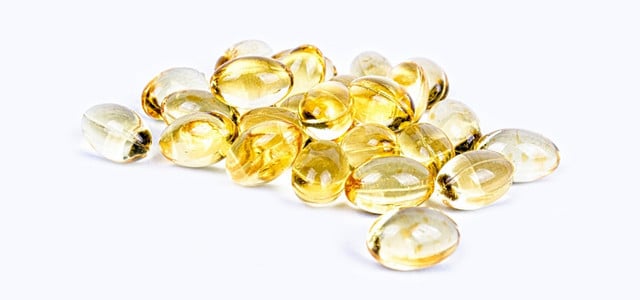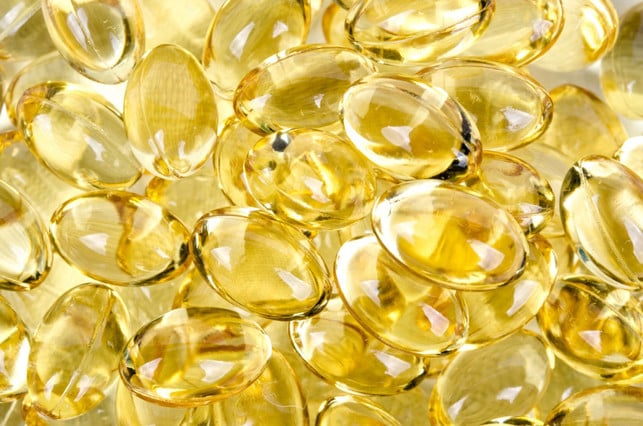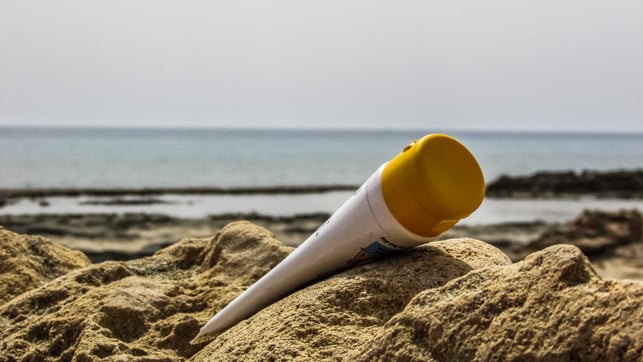
Summer and therefore automatically more sun-that seems to make vitamin D supplements superfluous. But is that really? We explain to you in which cases it can make sense to take vitamin D in summer.
The vital vitamin D is mainly formed in our body by sunlight. Therefore, many people take vitamin D preparations, especially in the winter months, to compensate for deficiency symptoms of too little sun.
In summer, the number of hours of sunshine and the power of the sun increases significantly. We are more often outside and more skin surface gets something from the sunlight, for example when bathing by the lake. It is reasonable to assume that vitamin D preparations are superfluous in summer. For most cases, this is also true – for some people it can be better or even necessary to take vitamin D in summer.
Why does the body need vitamin D?

Vitamin D is an umbrella term for a larger group of fat -soluble vitamins. These include, for example, vitamin B2 and B3. Vitamin D is vital and, according to the Robert Koch Institute, has a variety of tasks in the body:
- It is involved in the metabolism.
- It is jointly responsible for the formation of certain proteins.
- It plays a role in controlling different genes.
- It takes on a key role in bone mineralization (by promoting the absorption of calcium and phosphate).
With the help of the UV-B radiation, the body forms 80 to 90 percent of the vitamin itself. But this requires a stay outdoors and correspondingly a lot of sunlight. Most of the vitamin D is produced in the summer months. The solar radiation in winter is comparatively too weak for that. Therefore, many people take dietary supplements with vitamin D, especially in winter. If you want to know more about it, take a look here: Of course, vitamin D in winter: Is that possible at all?
By the way, we also take vitamin D through the food, but only in small quantities. You can read more details here: Vitamin D: You can find it in these vegans and vegetarian foods.
Where does a vitamin D deficiency come from?

According to the Robert Koch Institute, a vitamin D deficiency in summer can occur if you either don’t stay outside long enough or do not get enough sun for other reasons. External factors can also be to blame for this. For example, if it is constantly cloudy in summer or there is heavy air pollution, this can make contact with sufficient sunlight difficult. In addition, factors such as the ozone content in the air also play a role.
In addition, individual factors influence how well your body can form vitamin D. This includes:
- Age (older people can form less vitamin D)
- Skin color
- Body weight
- Your lifestyle (leisure activities, work etc.)
- Sun protection behavior (e.g. UV protective clothing)
- Clothing behavior (how much of the skin is covered)
A vitamin D deficiency can also be favored by certain diseases or medication. Significations range from chronic fatigue and susceptibility to infections to metabolic diseases and other serious complaints.
Since only small amounts of vitamin D can be absorbed through the food, people with such a defect must supply the missing vitamin D via dietary supplements.
Vitamin D deficiency despite summer and sunshine: is that possible?

In 2022, the University of Rostock published the first study results that suggested that older adults tend to vitamin D, especially in summer. The study makes it clear how great the influence of individual and external influences on the vitamin D values. Even with two people who spend the same amount of time in the sun, this can lead to different vitamin D values.
Therefore, a vitamin D deficiency is also possible in summer-either through appropriate weather or if you spend a lot of time in closed rooms. (A: E 40-year-olds: R needs 11 to 15 minutes of sun at noon, from 70 even twice.) But other factors presented above also influence your vitamin D values in summer. Even if the sun shines strongly, you can have a vitamin D deficiency in summer, for example favored or caused by:
- excessive stay in closed rooms
- Wearing covering clothing
- Advanced age
- Certain diseases or medication
Should I take vitamin D in summer?

This question can only be answered individually and with medical consultation. Expert: Inside, suggesting that every body produces vitamin D differently and alternates. Even with healthy people, the amount of sunlight can therefore vary that is necessary to produce enough vitamin D. Whether you should take vitamin D in summer or not depends not only on the factors mentioned above, but also on your own metabolism.
Therefore, only a blood test can clarify whether you suffer from a vitamin D deficiency or not. If this should be the case, your: e doctor will probably prescribe in taking a corresponding preparation, which you should then take in summer.
Important: You should never take vitamin D supplements on your own. An overdose of vitamin D can be dangerous. Always clarify beforehand whether you really need nutritional supplements and get advice on suitable preparations. Because the selection is not easy and there is criticism of many commercially available vitamin D preparations. We have evaluated the results of an investigation by ÖKO-Test in another article: Öko-Test Vitamin D preparations: often much too high.
Hinder sunscreen The formation of vitamin D?

This question has led to many debates in science in the past. Some people deliberately go into the sun without sunscreen or even consistently do without their use because they fear that sunscreen prevents the formation of vitamin D.
But that’s not quite true: In fact, sunscreens block part of the UV radiation. Something of it gets to the skin. According to a meta-analysis, numerous studies have shown that, contrary to frequent assumptions, people who use sunscreen regularly do not tend to vitamin D deficiency. The concern for your vitamin D mirror is therefore no reason to forego sun protection.
Because for the production of enough vitamin D it only takes a few minutes of full sun in summer. So you can confidently enjoy the sun without sun protection two to three times a week to fill up your vitamin D memory. If you are outside longer, you should definitely use sunscreen. Otherwise your risk of sunburning such as sunburn, premature skin aging and skin cancer will significantly increase.
If you actually have a vitamin D deficiency, it may be that it is caused by other factors than a lack of sunlight. If this should be the case, more unprotected time in the sun will not help you much and in return only increase your risk of other diseases due to the sun’s rays. In the summer, you prefer to rely on good sun protection and griffens if you have any signs of vitamin D deficiency by medical consultation with other means in order to counteract the deficiency symptoms.
Read more on utopia.de:
- Lack of nutrients: how you recognize it and what you can do about it
- Light therapy: This is how daylight lamps work
- Vitamin B12: deficiency, food and preparations
** marked with ** or orange underlined Links to sources of supply are partially partner links: If you buy here, you will actively support Techzle\.com, because we will then receive a small part of the sales proceeds. More information.